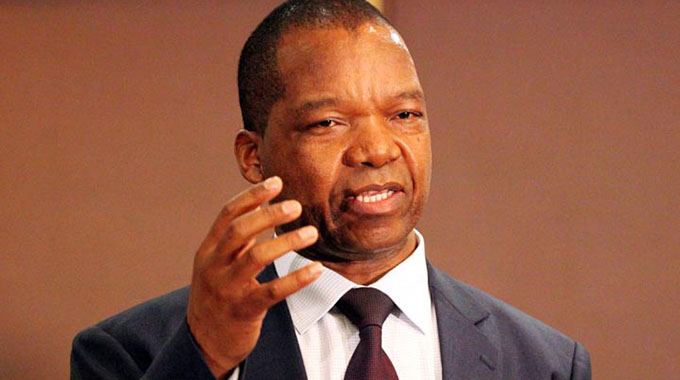RBZ calls for efficient interbank market

Golden Sibanda Senior Business Reporter
The Reserve Bank of Zimbabwe (RBZ) has directed banks to discontinue twinning arrangements for their customers, with a view to promote efficient functioning of interbank market and willing-buyer willing-seller practice in trading of foreign currency.
Banks will also now require prior foreign exchange approval authority for all foreign payments that include dividend and subscription fees, following indications some were dipping in clients’ funds for own obligations.
Moral hazards that include misdirection of foreign currency and twinning of sellers and buyers (pairing customers outside the interbank system) of foreign currency is widely believed to be one of the major causes of the lukewarm start of the interbank foreign exchange market.
Despite the country having built stocks of forex — now marginally short of hitting the US$1 billion — the highest since 2009, acute shortage of foreign currency persisted as little foreign currency found its way to the interbank. Instead, banks would make twinning arrangements between strategically positioned clients, for instance holders of forex and their suppliers of key raw materials, which starved other key sectors of the economy without such special privileges.
RBZ governor Dr John Mangudya introduced the interbank when he presented his 2019 monetary policy in February this year and at the same time introduced local currency (RTGS), which is now “freely” floated and traded on the platform. While it was expected that the interbank would resolve issues around allocation and shortage of hard currency, it got off to a slow start as exporters tightly held to their funds amid concerns of perceived low interbank rate.
Alternatively, the banks would make special arrangements between clients, from which they made huge commissions, instead of facilitating and promoting trading on the interbank foreign exchange market. There is also a general feeling that the central bank is “managing” the interbank rate to prevent it from “freely” rising according to market forces, which many believe was being done to rein in rampaging inflation rate.
It was this alleged “controlled” floating of the foreign currency, in comparison to dynamics on the black market, which many people believed also hampered the free and market led operation of the interbank market.
RBZ Governor Dr John Mangudya said in a statement last night that all banks were required to stop all twining arrangements forthwith and allow free willing buyer-willing seller practice to reflect true market conditions. He said banks must ensure that there were no moral hazards in the operation of the interbank foreign exchange market.
This comes as petroleum marketers will from today have to procure foreign currency for importation of fuel on the interbank foreign exchange market, as Government moves to enhance efficiencies in the procurement of fuels into the country.
“In this regard, all the foreign exchange requirements for banks for their own use that includes dividend payments, subscription fees, etc. would need prior Exchange Control approval for the proper conduct of the interbank foreign exchange market. Similarly, banks should discontinue twinning arrangements for their customers as this undermines the efficient operation of the interbank foreign exchange market,” Dr Mangudya said.
The new framework will be anchored by US$500 million worth of lines of credit from Afreximbank, whose drawdown the central bank started yesterday. The new forex rules for fuel marketers will also see the Government scrapping excise duty on fuel, which was introduced in January, as part of concerted efforts to bring prices in line with the region to eliminate arbitrage opportunities.
Amid fears some forex allocated at 1 to 1 for key imports may have been abused through arbitrage and speculation, Cabinet is said to have recently requested an audit of firms that received foreign exchange at US dollar to RTGS parity between October 2018 and February 2019.
Since the fuel importers will procure fuel on the interbank market, as part of niftily refining the fuel procurement process, Government has ended foreign currency allocations to the country’s fuel marketers on a 1 to 1 basis.
While Government adjusted fuel prices to plug arbitrage gaps, which contributed to fuel shortage, prices of local fuel is believed to still be on the lower side, about US$1 per litre at the interbank rate (RTGS$3,45) and US60-70 cents per litre using parallel market rates. Gaps, wildly believed to be the result of arbitrage and speculative practices, within the country’s fuel procurement and distribution industry, have resulted in demand and supply mismatch, which often manifest in crippling shortages and long queues.
This may, however, come to an abrupt end, after the Reserve Bank of Zimbabwe (RBZ) said at the weekend that it had secured half a billion United States dollars to strengthen and enhance the efficient functioning of the interbank foreign exchange market.
Market intelligence indicated yesterday after the tweeted message by central bank Governor, hours following wild swings in parallel market exchange rates, had calmed nerves and sent rates on gradual downslide, as liquidity on the interbank is set to improve.
But this was not before prices of some basic goods such as cooking oil, rice and flour skipped on the back of speculative and profiteering tendencies synonymous with the majority of the country’s unscrupulous businesses. The interbank market is aimed efficiently allocating and facilitating free trade in foreign currency, improve and promote confidence in a market based foreign currency market to increase foreign currency inflows into the economy.
There has been widespread concern that the 1 to 1 allocation of foreign currency for fuel imports, which existed prior to introduction of the free float foreign exchange system and interbank market, was not sustainable given foreign currency limitations. Essentially, the Government has been significantly subsidising fuel procurement into the country, especially as this relates to foreign currency, at a time the economy does not have the stamina to sustain such benevolence, which was done with an eye on inflation.










Comments